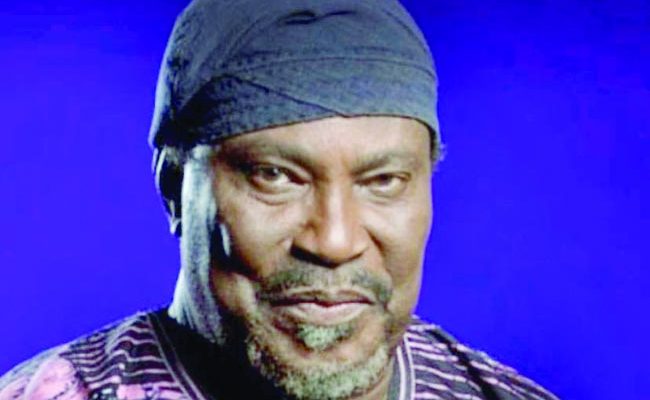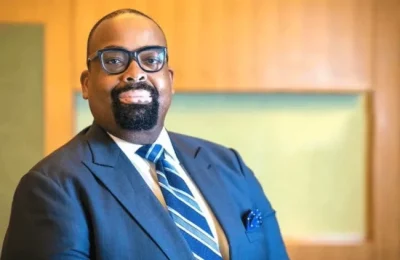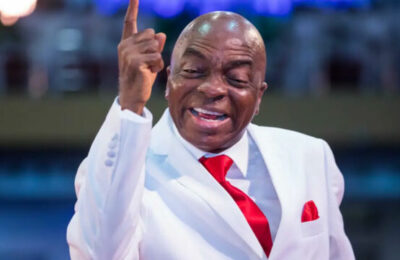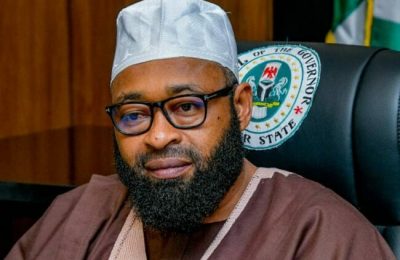

In what may turn out to be his last interview, Dejumo Lewis, veteran actor famed for his iconic role in the classic drama ‘Village Headmaster,’ had, during this encounter some months back, shared insights into his career, spanning over 30 years in film, radio, and television broadcasting, with SEGUN ADEBAYO. Lewis, who died on Friday at age 80, conveyed a sense of unfulfilled dreams, hinting that there were still unexplored dimensions of his artistic journey yet to be unveiled. One of which was a book entitled ‘The Project Afrikar’, he didn’t get to launch due to lack of funds. The interview, arguably the last he granted and published in the Sunday Tribune edition of 22 January, 2023, is hereby is reproduced.
What prompted the decision to bring back the old ‘Village Headmaster’ you are currently working on?

There has been a clamour for the return of the ‘Village Headmaster’ over a period of 30 years ago, when it was rested unceremoniously.
Many people felt it was unfair to have rested it. How did you feel about it?

It was sad because it was rested without consultation with even sponsors, producers, and all the stakeholders that were involved in the production. It was just yanked off the scene and that was it. Viewers have been requesting on a daily basis to have the programme back, but the NTA turned a deaf ear to the clamour for it. Even while the creator was alive, he wanted a private production of the programme and he detailed Tunde Oloyede to work on it. But for some uncanny reasons, it just didn’t take off till the man died.

Who was the creator of the programme?
Ambassador Segun Olusola. He was the creator of the programme and has been given credit for it as the creator since the year the programme hit the screen in October 1968. Two to three years ago, we the actors decided to hold 50 years commemoration of the programme. When that happened, we drew the attention of people like Wale Adenuga, owner of Pefti and Wale Adenuga Production and other corporate organisations to get interested and that is how he approached NTA authorities that they could go on a collaboration, so that the programme can come up again and they agreed and publicly signed a deal to have it executed.
When the programme was yanked off the air, what kind of setback did it give you personally?
It was very sad and depressing. It appears there was nothing anybody could do as long as NTA’s top management decided to yank it off. It was stopped in 1989 until it was resuscitated by Wale Adenuga.
For that number of years that it was taken down, you have participated in other movie productions. Was there anything close to what you had over 30 years ago?
I think TK’s production of Agogo Eewo was something close to it because it had similar objectives of showcasing our culture and addressing indigenous challenges that we have concerning leadership and governance, that one was so outstanding. Other ones that I took part in were just social issues that were of interest to the producers and owners of those movies.
With what you did on the Village Headmaster back then, do you think you can still reproduce the same feat if you are given the same character to play again. Do you think you still have it?
Yes, to a great extent, I can do better but I have my reservation as to the development of the programme. So, the objectives, I think they are trying to keep to it, to have it done along the line of the original objectives.
You have been in the movie industry for a long time. You have seen the transformation from the old days to the new order. Looking at what we have now, what exactly do you think this industry has not been getting right?
It is mainly our Nigerian or African colonial mentality, that they are just concerned about the foreign ideas and foreign way of life, foreign issues, more than they are concerned about their own indigenous issues. From my own study of culture and communication, the content of any communication medium should be the indigenous way of life and system. In that process, you address the challenges concerning development, sustainable development.
Are you comfortable with the movies being released?
It is very sad. These days all we see are domestic violence, social violence, military violence but we are saying we want peace. We say we don’t want violence, attacks, kidnapping, we want peace and sustainable development, but we are doing the very opposite to achieve that.
Looking back in which area do you feel most unfulfilled?
I have been writing a book for so long about the time I did my Master’s degree course in Communication at the University of Ibadan. I graduated in 1991 after practising communication, television broadcasting, and radio broadcasting for over 20 years. So, I have been involved in the practice of communication. So, that is what informed my decision to go for my Master’s to understand the theories of communication, to know why we do things in movies on communication in our culture. Why we do it; the way we do it. So, that got me to the basic principles of communication and for my dissertation and thesis, I wrote on Culture and Communication: A Study of NTA Network Programmes. And I have been developing the dissertation into a book for over 30 years ago, and right now, I have seven volumes of the same book. I was going to publish it like that before. But I realised it was so bulky and it might be a put-off to many people who are interested in that subject. So, I have to break down everything into seven volumes entitled ‘The Project’, Afrika- Developing Africa by AfriKa. The implication of this is that it is calling attention to the destructive effect of imperialism, colonialism, even from the early period of what is now the norm in Africa regarding governance and development. That it is foreign investment and foreigners that have been involved in our development and not our people though we have been having western education in areas like engineering, medicine, name it, economics, governance, international relations and all that. By the way, the spelling of Africa in the Project Africa is with a ‘K’ not a ‘C’.
Why did you do that sir?
Because that is the way to write it. As Africans. We don’t even have a ‘C’ in our African alphabet, particularly, the Yoruba alphabet. So, it is Project Afrika; Developing Africa by African People. And that is what is responsible for why things are not working. Or rather, are working in the opposite direction.
One of the seven volumes, which I want to publish now, this publication has been delayed because of lack of money. The issue is, I am calling attention to the dire effect of imperialism and colonialism and Africans have got to get on top of their development if we really desire our development to be sustainable. But I am addressing it at a global level. In fact the title of the first volume that I am about to publish is ‘Compelling global restructuring is long overdue. Today, we just have two global technologies: the West and the Arabs. Even in China and India, they have been working and are still working on their own indigenous technologies, because I discovered in my research that there is technology embedded in every indigenous system and culture like language, education, and religion. It has changed something called primary message system.
The elections are coming and it is generating a lot of reactions and counter-reactions across the polity. What do you suggest Nigerians should do to get it right this time?
What we should be planning, for now is not a general election to elect new leaders, but rather, an interim government, that is, zero -party election, in which all the cultures in Nigeria take over their development and governed by electing indigenous people from the six major cultures like the Yoruba, Igbo and other geopolitical zones. We are copying from the West and it has not helped us and is not even helping them. Look at what is happening all over the world today, in Ukraine, the US, the UK and everywhere, nowhere is stable politically. The reason is because the system of democracy is not executed in the right way and we Africans have our own original democratic system which we should go back to. We should reverse and develop. That is my position. Rather than having any general election now, we should have an interim government of indigenous representatives from the six geopolitical zones to now handle the issue of restructuring, democracy, African technology, and the African economy. See what is happening to our Naira! It is really as sad and frightening as the violence that is going on across the whole world. But we concentrate only on Nigeria. The criticism is just on the central government, on Buhari and his government and that is where we have missed the point and are going totally astray, off the track of sustainable development.
READ ALSO FROM NIGERIAN TRIBUNE









